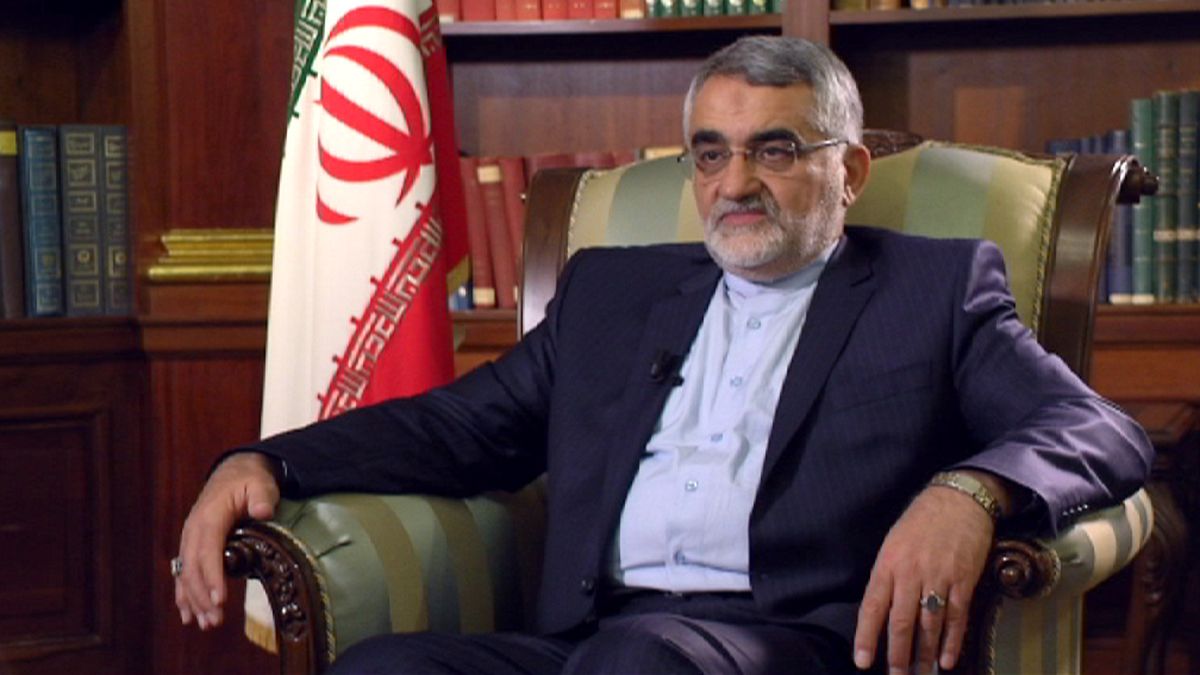Iran’s Supreme Leader Ali Khamenei has claimed the Islamic State militant group or ISIL was created by the West to weaken the Middle East.
He said the US and the “wicked” British government wanted to creating divisions between Sunnis and Shi’ites.
His comments have been backed up in an interview with euroews by Alaeddin Boroujerdi, president of the foreign affairs committee in the Iranian parliament.
As well as seizing large areas of Iraq and Syria, the jihadist organisation is in control of towns close to the Iranian border.
Last week, Iraq’s new president Haidar Al Abadi visited Tehran for talks on how to stem the threat posed by ISIL.
Relations between the two have improved since the fall of Saddam Hussein in 2003 and Iran promised to provide Baghdad with military advisers and weapons.
Meanwhile a deadline looms over Iran’s contested nuclear programme on November 24.
Some sanctions were lifted following last year’s interim deal but many analysts doubt whether Tehran will agree to a permanent shut down of its suspect facilities.
And as Tehran and Washington find themselves on the same sides in the fight back, the US has still ruled out including Iran in the anti-ISIL coaltion.
Euronews correspondent Omid Lahabi spoke to Alaeddin Boroujerdi, president of the Foreign Affairs Committee of the Iranian parliament to find out more about a softening in relations between Iran and the West.
Omid Lahabi, Euronews:
Starting with the threat from the miltiant group ISIL, an enemy of both Iran and the US. Do you think it is likely that we will see cooperation between Washington and Tehran to repress the group?
Alaeddin Boroujerdi, Iranian parliament Foreign Affairs Committee president:
Unfortunately, America and its European and regional partners played a role in the creation of this terrorist group.
We’ve been doing battle with ISIL since it was created.
While Washington watched this catastrophic situation unfold, they did not react until after the assassination of two American journalists. Then the pressure of public opinion at home forced them to join the fight.
So we can not trust this coalition, because the same countries that created this group now they want to fight them.
In light of this contradiction and lack of cooperation, we are working on our side and the Americans are working on their side as part of the coalition.
Omid Lahabi, Euronews:
Let’s talk more about US-Iran relations. After 35 years, Boeing has sold some parts to Iran. Is this a sign of an easing of sanctions or an evolution in the relationship?
Alaeddin Boroujerdi, Iranian parliament Foreign Affairs Committee president:
The Geneva agreement (on our nuclear programme) and notably negotiations with the US have had an effect on the political atmosphere between Iran and Washington and also on our relationships in the region and with the West in general.
But unfortunately, some countries in Europe and the Middle East have put pressure on the US. They are not happy about the prospect of a final agreement and of sanctions being lifted.
The reason for our deal with Boeing and the sale of parts is related to these negotiations and the impact of these talks. We’ll see when the deadline (for a deal on our nuclear programme) is reached on November 24th.
Omid Lahabi, Euronews:
Relations between Europe and Russia are tense because of the Ukraine crisis and right now Europe is worried about its winter energy needs. Could supplies from Iran replace Russian gas exports to Europe if required?
Alaeddin Boroujerdi, Iranian parliament Foreign Affairs Committee president:
The debate on whether we stockpile gas for Europe has been going on for a long time.
At the moment, the Americans are against the idea. You know, talks about the extension of a European pipeline linking Iran to Turkey were at an advanced stage, but once again the Americans put pressure to ensure it doesn’t happen.
I now believe that the objectives of American foreign policy remain unchanged.
